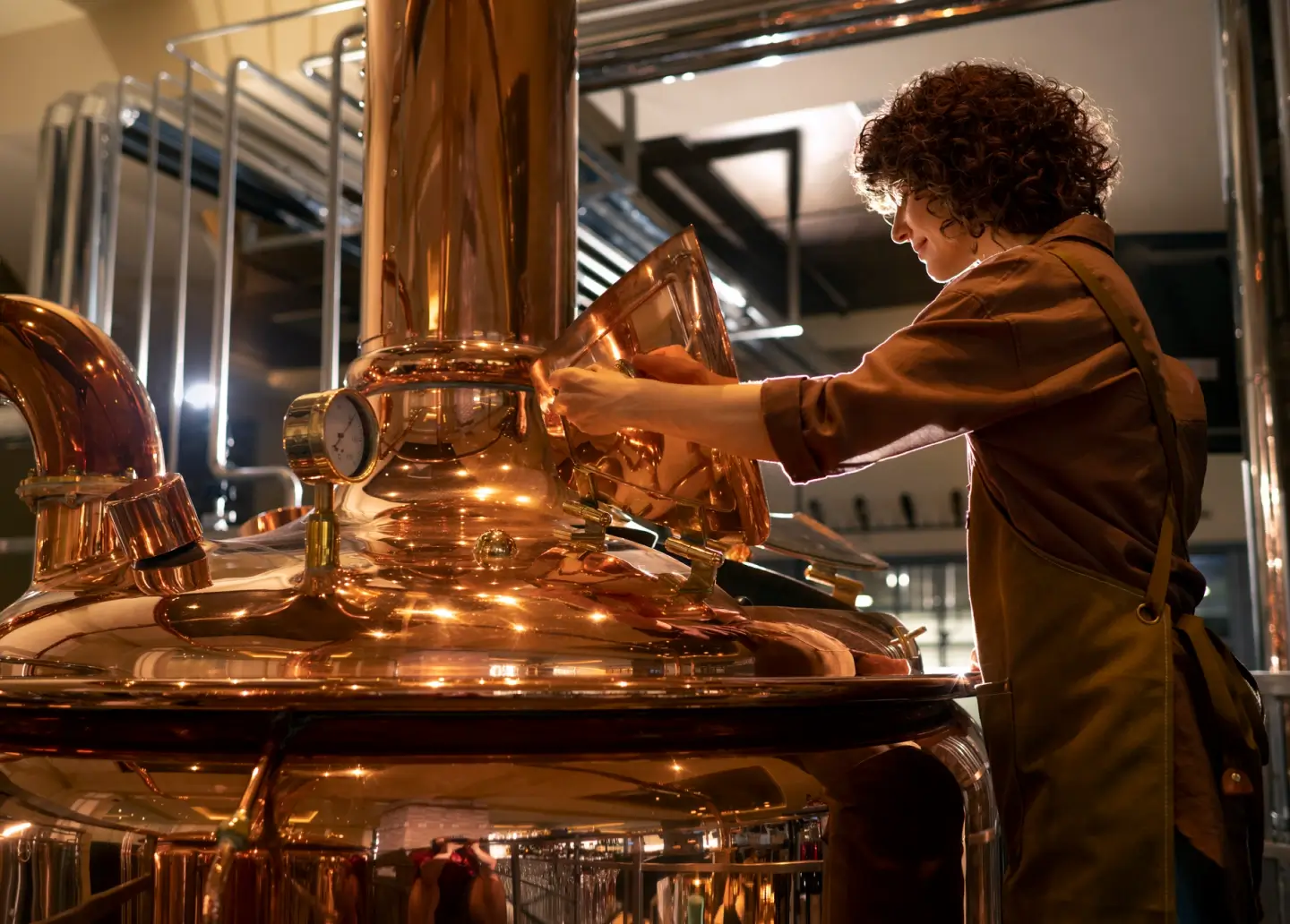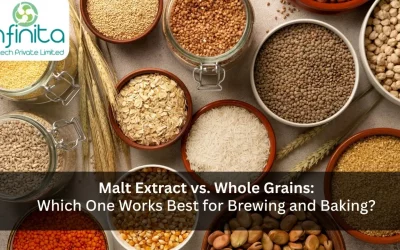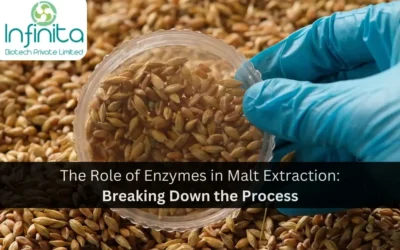Enzymes In The Malting Process
Brewing is one of the oldest food processing techniques in today’s world, followed by human beings. The technology of beer production began some six thousand years ago and had been evolving ever since. The Egyptian and Mesopotamian civilizations followed the enzyme malting procedure.
Owing to its popularity, the beer malting process is one of the most critical sectors in the lead food industries. People in the West have adopted the malting process using enzymes. The application of enzymes has only contributed to speed up the process.
Brewing Process
The brewing process is divided into different sectors, inclusive of malting, mashing, milling, lautering, fermentation, conditioning, filtering, hoping, canning, and bottling. Grains such as wheat and barley are dried and included in the malting process to speed up the process. It is necessary to note the different temperatures at which they will be malted. Furthermore, the enzymes, too, would have an important role. Using the right enzyme will play an essential role in improving the beer’s flavour and bringing stability.
After the beer brewing process is completed, it is cooled down. The cooling process will help to avoid any unwanted and harmful materials in beer. It will also have a significant impact on the carbonation, aroma, and taste of the beer. The beer is filtered through the sheets so that the suspended particles are removed through it. Hops, barley grains, and yeasts are some essential aspects that may harm the beer brewing process. Depending on the brand’s requirements, beer will be packaged into bottles and kegs. It is necessary to pack beer properly to prevent oxygenation and avoid spoilage and damage to the beer.
Enzymes And Their Importance In The Food Industry
All enzymes in malting process will have a significant impact on how a particular food is made. The enzymes across the industry and their benefits include the following.
1. Beta-glucanase: This is one of the main enzymes, which is why it is used extensively in the brewing industry.
2. Lipase: Lipase is used at a tremendous rate across the food industry. They are a part of infants’ formulas and fat burners. The other sectors where Lipase is used include the pet food industry, oil industry, and the dairy industry.
3. Ficain: Ficain is massively used along with papain and bromelain as one of the most effective meat tenderizers.
4. Chymosin and Pectinase: Chymosin and Pectinase are used in combination with each other for cheese making. It is also used across the fruit juice industry and for wine production.
Enzymes In Brewing
Enzymes have unique characteristics and actions which have an essential role in the brewing industry. The main enzymes used across the beer brewing industry are divided into four main processes: germination, mashing, fermentation, and clarification. It is necessary to have extensive knowledge about the brewing process because of the temperatures involved. The four most common enzymes used in the malting process are beta-glucanase, alpha-amylase, protease, and beta-amylase.
Enzymes are of two types: endogenous and external. A lot of beer brewers use high-quality enzymes because it contributes to different features such as colour, texture, clarification, and flavour. During the barley mashing process, it is necessary to use the right enzymes to produce high-quality beer. The wrong enzymes would make low-quality beer and even yield fewer products.
Beta Glucanase
Beta Glucanase is one of the most important enzymes of the brewing process. It has a significant role to play in the malting and mashing process of the brewing process. Beta Glucanase is often obtained from barley and is often referred to as endo-b1, 3-1, 4-glucanases. But in today’s time, commercial-grade Beta-Glucanase is used for making lighter beers. Malting and mashing further contribute to improve the texture and quality of beer production.
Beer turbidity is one of the most loved craft beers. Hence, the addition of commercial beta-glucanase only adds up to the beer clarification process. As per the retail level, beta-glucanase is usually used at 0.3-1 kg per ton. The temperature and pH level needs to be thoroughly maintained. 45°C is considered to be the ideal temperature at which the enzymes hydrolyze cell walls.
Amylases
Amylases are used extensively for breaking down starch. During the breakdown process, amylase converts starch into maltose, dextrins, oligosaccharides, and glucose molecules. Controlling amylase temperature is crucial to maintaining beer quality. With the amylase amount, the starch level is determined as well.
Amylase is often used in terms of beta and alpha, depending on the requirement. While both are important, both work under different temperatures. The beta-amylase works at an optimal temperature of 62.78°C and an adequate pH level of 5.5. On the other hand, alpha-amylase results at an optimal pH and temperature of 5.2 and 73.89°C, respectively. The beta-amylase should be used as an external dosage to get maximum advantages. Beta amylase plays an essential role during the saccharification process.
Protease
Protease is one of the most effective enzymes contributing to the hydrolysis of peptide bonds in a protein. Using protease in the brewing procedure can bestow several benefits to the beer quality. Since protease helps to improve protein solubility, it contributes to lowering beer viscosity.
Protease is furthermore required for yeast growth. Protease plays an essential role in the mashing procedure as it hydrolyzes the mashing procedure, thereby contributing to improved mashing and better wort fermenting. Protease is naturally found in barley kernels, which is why it is necessary to check the level in the malting process. The addition of external commercial-grade protease is essential to maintain the quality of beer. It is necessary to avoid protease overdosing because it can lead to unwanted impacts such as foam instability and enzyme degradation.
Additional Enzymes Used In The Brewing Procedure
The enzyme technology has rapidly evolved in the past few decades. With this, several enzymes have come into use to ensure better brewing quality across the industry. Throughout these years, enzymes have played an essential role in maintaining beer quality, enhancing the production process, contributing to the storage, and even helping with transportation without beer damage. While enzymes such as protease, amylase, and beta-glucanase have an essential role to play, other groups of enzymes contribute to the beer brewing process.
Alpha-acetolactate decarboxylase (ALDC), belonging to the lyases family, is one of the most important groups of enzymes. Ficin and papain obtained from figs and papaw latex are used as useful chill-proof enzymes contributing to hydrolyzing proteins and helping with chilling haze. The thermostability enzymes work between 60-65°C thereby contributing to the entire process. They maintain the typical pH level of protease. Alpha-acetolactate decarboxylase helps to lower the fermentation time and speeds up the beer production process without any disturbance in the beer quality.
Takeaway
In today’s time, beer brewing is one crucial process that cannot be done without enzymes’ usage. These enzymes are no less than biological catalysts that help to boost up the food production process. They also contribute to maintaining food quality. Several enzymes play an essential role in the beer production process. Brewing is a complicated procedure that involves a lot of things. Malting and the use of commercial enzymes are crucial to the brewing process. The application of enzymes in the beer brewing processes are sensitive and require extensive maintenance and care to avoid over-dosage. One mistake and the entire quality of your beer will go down.

 Summarize this Article with AI
Summarize this Article with AI






